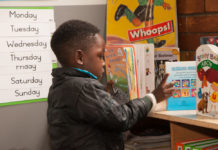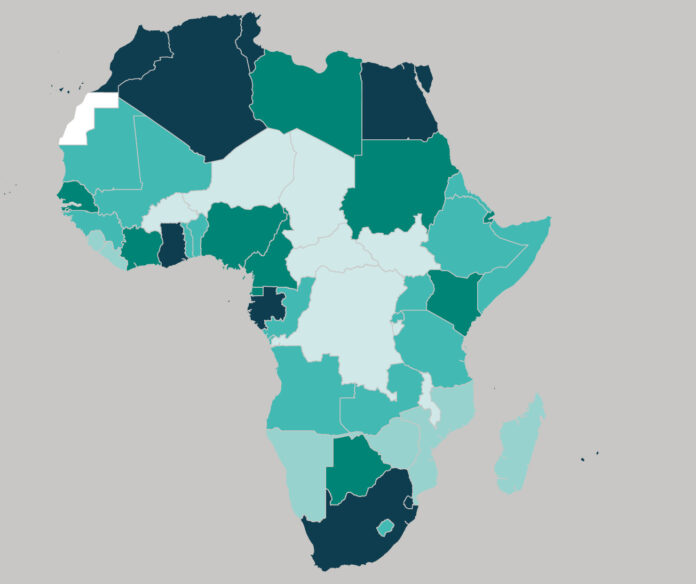Africa’s unification has long been an aspiration of Pan-Africanists and visionaries who see the continent’s unity as the key to its economic, political, and social advancement. Yet, despite decades of rhetoric and institution-building, the reality on the ground is that most indigenous Africans—ordinary people rooted in their communities—are not actively invested in or mobilized for continental unification. This article explores the complex reasons behind this phenomenon, drawing from historical, political, social, and cultural contexts.
Historical Legacies and the Challenge of Unity
Africa’s colonial history left a legacy of arbitrary borders, forcibly grouping together diverse ethnic, linguistic, and cultural communities within single states6. This fragmentation continues to challenge efforts at building unified national identities, let alone a pan-African identity. The imposition of Western governance structures during colonial times disrupted indigenous systems, creating a disconnect between state institutions and the people6. Many Africans remain more loyal to their ethnic groups or local communities than to the abstract notion of a unified Africa.
Pan-Africanism: Elite Ideals vs. Grassroots Realities
Pan-Africanism, the ideology advocating for the unity and upliftment of people of African descent, has historically been championed by political elites, intellectuals, and diaspora leaders1. Critics argue that Pan-Africanism is often a movement of the educated bourgeois elite, disconnected from the daily realities and interests of ordinary Africans1. As Kenyan journalist Philip Ochieng noted, “Pan Africanism was a movement of a self-interested class”1. Many newly independent African countries resisted pan-African political unification, fearing it would threaten their hard-won national sovereignty and the interests of their ruling elites1.
For most indigenous Africans, the pressing issues are local: land rights, access to resources, education, healthcare, and security. The grand project of continental unification is often seen as distant, abstract, or even irrelevant to their lived experiences.
Ethnic Diversity, Tribalism, and the Fear of Marginalization
Africa’s immense ethnic diversity is both a source of cultural richness and a persistent source of division68. Tribalism and ethnic-based conflict have caused millions of deaths and widespread displacement8. In many countries, political power and resources are distributed along ethnic lines, fueling competition and mistrust. Efforts to build unity—whether at the national or continental level—often falter on these deep-seated divisions.
Many indigenous Africans fear that unification projects may lead to the dominance of larger or more powerful groups, further marginalizing minority communities10. The idea of a “United States of Africa” raises concerns about insufficient representation for the continent’s thousands of ethnic groups, potentially leading to calls for secession or renewed conflict9.
The Indigenous Rights Movement: Recognition vs. Homogenization
The concept of “indigenous peoples” in Africa is itself contentious. Many African governments argue that all Africans are indigenous to the continent, and that singling out specific groups for special rights is divisive and threatens national unity10. Indigenous rights activists, however, point out that certain groups—such as hunter-gatherers and pastoralists—have been historically marginalized and deserve specific protections410.
The struggle for indigenous rights has sometimes clashed with pan-African or national unification agendas. Governments fear that recognizing indigenous groups could lead to claims of secession or undermine territorial integrity211. However, international legal frameworks, such as the UN Declaration on the Rights of Indigenous Peoples, clarify that self-determination for indigenous peoples does not entail secession, but rather participation in national affairs and the preservation of cultural heritage within existing states711.
Pragmatism and Disillusionment with Continental Advocacy
Case studies, such as the San people of Botswana and the Mbororo of Cameroon, illustrate the trajectory from enthusiasm for international indigenous rights advocacy to disillusionment and pragmatism3. Many indigenous communities have found that global advocacy yields limited results on the ground, and that collaboration with national governments—despite its challenges—may be more effective for advancing their interests3.
This pragmatism reflects a broader trend: indigenous Africans are more concerned with practical improvements in their lives than with ideological projects of continental unity. The focus is on securing land, livelihoods, and cultural survival, rather than on abstract political integration.
The Role of the State and the Limits of Supranationalism
African states remain the primary actors in shaping the lives of their citizens. The nation-state, despite its colonial origins, is still the main framework for governance, rights, and identity36. Efforts to build supranational African institutions have often been hampered by the reluctance of states to cede sovereignty and by the lack of effective mechanisms for inclusive representation12.
Attempts at African unification—whether through the African Union or proposals for a continental government—have struggled to overcome these structural obstacles. The diversity of economic systems, political cultures, and social structures across the continent makes the creation of a unified polity extraordinarily complex912.
Conclusion: Unity in Diversity, or Diversity over Unity?
The idea of Africa’s unification remains a powerful symbol for many, but for most indigenous Africans, the realities of daily life, local identity, and historical experience take precedence over continental ambitions. The challenges of ethnic diversity, the legacy of colonial borders, the disconnect between elites and ordinary people, and the pragmatic focus on local rights and development all contribute to a lack of grassroots enthusiasm for unification.
Rather than imposing a top-down vision of unity, Africa’s future may lie in embracing its diversity, fostering inclusive governance, and building solidarity through respect for local identities and rights. Only by addressing the real concerns of indigenous Africans can any broader project of unity hope to gain genuine support and legitimacy.
Key Takeaways
-
Indigenous Africans prioritize local issues and identities over abstract continental unity.
-
Pan-Africanism has often been an elite-driven movement, with limited grassroots resonance1.
-
Ethnic diversity and historical divisions pose significant obstacles to unification689.
-
The indigenous rights movement sometimes clashes with state and continental unity agendas, but seeks recognition within existing national frameworks231011.
-
Pragmatism and a focus on practical improvements guide indigenous Africans’ political engagement, rather than grand ideological projects3.
Africa’s strength may ultimately be found not in forced unification, but in the creative management and celebration of its rich mosaic of peoples, cultures, and histories.
By George Prince
Citations:
- https://en.wikipedia.org/wiki/Pan-Africanism
- https://www.cetri.be/Indigenous-people-s-struggles-for
- https://repository.kulib.kyoto-u.ac.jp/dspace/bitstream/2433/197192/1/ASM_36_49-74.pdf.pdf
- https://oxfordre.com/africanhistory/display/10.1093/acrefore/9780190277734.001.0001/acrefore-9780190277734-e-263?p=emailA6gAFNSNc8.Pk&d=%2F10.1093%2Facrefore%2F9780190277734.001.0001%2Facrefore-9780190277734-e-263
- https://oxfordre.com/africanhistory/display/10.1093/acrefore/9780190277734.001.0001/acrefore-9780190277734-e-263?d=%2F10.1093%2Facrefore%2F9780190277734.001.0001%2Facrefore-9780190277734-e-263&p=emailAGDVlUK.8UMuU
- https://www.pambazuka.org/The-Future-of-African-Sovereignty
- https://iwgia.org/images/publications/Advisory_Opinion_ENG.pdf
- https://panafricanreview.com/is-african-unity-possible-when-africans-are-divided-on-tribal-grounds/
- https://www.africanliberty.org/2018/09/17/five-reasons-why-a-united-states-of-africa-will-not-work/
- https://gga.org/africas-first-peoples-are-gaining-ground/
- https://achpr.au.int/en/mechanisms/working-group-indigenous-populationscommunities-and-minorities-africa
- https://journals.co.za/doi/full/10.47348/FUND/v28/i1a2
- https://oxfordre.com/africanhistory/display/10.1093/acrefore/9780190277734.001.0001/acrefore-9780190277734-e-263?p=emailA6gAFNSNc8.Pk&d=%2F10.1093%2Facrefore%2F9780190277734.001.0001%2Facrefore-9780190277734-e-263
- https://www.jstor.org/stable/2705391
- https://www.reddit.com/r/Africa/comments/1gxv6jw/why_countries_in_africa_couldnt_form_a_african/
- https://www.degruyterbrill.com/document/doi/10.7765/9781847791221.00018/html
- https://www.khanacademy.org/humanities/whp-origins/era-6-the-long-nineteenth-century-1750-ce-to-1914-ce/x23c41635548726c4:other-materials-origins-era-6/a/african-resistance-to-colonialism
- https://www.un.org/africarenewal/magazine/april-2007/%E2%80%98indigenous%E2%80%99-people-fight-inclusion
- https://iwgia.org/images/publications/Advisory_Opinion_ENG.pdf
- https://www.pambazuka.org/current-leaders-are-obstacle-unification-africa
- https://www.ajol.info/index.php/asr/article/view/23255/19938
- https://iwgia.org/iwgia_files_publications_files/Southern_Africa_Doc_Intro.pdf
- https://au.int/sites/default/files/speeches/38523-sp-oau_summit_may_1963_speeches.pdf
- https://www.reddit.com/r/Ask_Politics/comments/tlh5se/serious_question_why_dont_african_countries_that/
- https://en.wikipedia.org/wiki/Indigenous_peoples_of_Africa
- https://achpr.au.int/en/mechanisms/working-group-indigenous-populationscommunities-and-minorities-africa
- https://press.un.org/en/2006/hr4892.doc.htm
- https://freedomhouse.org/article/5-governance-challenges-africa
- https://iwgia.org/images/publications/0112_AfricanCommissionSummaryversionENG_eb.pdf
- https://journals.openedition.org/cea/1045
- https://africaindia.org/diversity-diffusion-and-challenges-in-african-culture-under-globalization/
- https://amaniafrica-et.org/is-the-african-union-failing-countries-in-complex-political-transition-insights-from-the-peace-and-security-councils-recent-session/
- https://shs.cairn.info/article/PRESA_175_0589/pdf?lang=fr
- https://acetforafrica.org/research-and-analysis/insights-ideas/commentary/african-unification-law-problems-and-prospects-a-book-review/
- https://journals.sagepub.com/doi/full/10.1177/11771801221138304
- https://www.jstor.org/stable/10.5305/amerjintelaw.104.1.0029
- https://iwgia.org/images/publications/0002_Land_Rights_of_Indigenous_Peoples_In_Africa.pdf
- https://www.jstor.org/stable/10.2979/aft.2010.57.1.42
- https://www.afdb.org/fileadmin/uploads/afdb/Documents/Publications/Development_and_Indigenous_Peoples_in_Africa__En__-__v3_.pdf
- https://africacenter.org/spotlight/african-union-20-much-accomplished-more-challenges-ahead/
- https://ir.library.illinoisstate.edu/cgi/viewcontent.cgi?article=2904&context=etd
- https://au.int/ar/node/43506
- https://dokumen.pub/visions-of-african-unity-new-perspectives-on-the-history-of-pan-africanism-and-african-unification-projects-african-histories-and-modernities-303052910x-9783030529109.html
- https://mo.ibrahim.foundation/sites/default/files/2024-01/2023-iiag-series-report.pdf
- http://liu.diva-portal.org/smash/get/diva2:277324/FULLTEXT01.pdf
- https://en.wikipedia.org/wiki/Pan-Africanism
- https://www.iir.cz/obstacles-for-regionalization-in-africa
- https://www.culturalsurvival.org/publications/cultural-survival-quarterly/nation-tribe-and-ethnic-group-africa
- https://www.linkedin.com/pulse/africas-journey-independence-reflections-challenges-ndemo-bsive
- https://www.american.edu/sis/news/the-african-union-has-had-a-shaky-two-decades-but-problems-can-be-solved.cfm
- https://www.afronomicslaw.org/category/analysis/review-visions-african-unity-new-perspectives-history-pan-africanism-and-african











